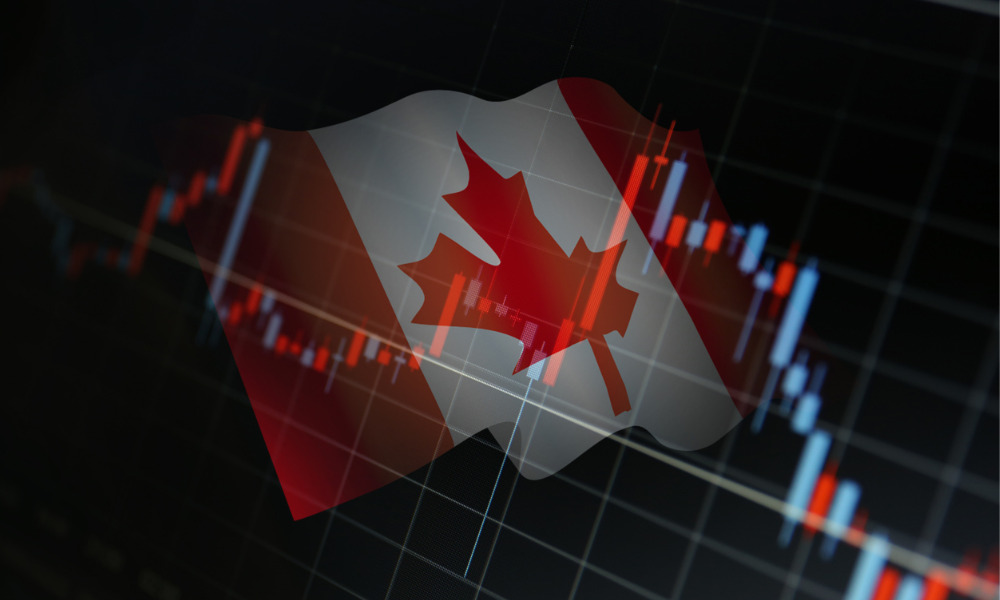Recession risks and headwinds in energy and financials don’t reflect longer-term prospects, say investment leaders

While the current and near-term picture for Canadian equities doesn’t necessarily inspire confidence, there’s still a long-term thesis for investors to hold the asset class, according to several investment industry leaders.
Garey Aitken, chief investment officer of Franklin Bissett Investment Management, notes that Canadian equities have posted strong performance so far in 2023, with an advance of around 7% as of July. But that advance, he argues, reflects valuations that shouldn’t be justified given the continued risk of a technical recession for the country’s economy.
“Even if we get a shallower recession, I think that we're seeing more and more stocks that are priced for perfection,” he told Wealth Professional in a recent interview. “Stocks have been good, and some sectors have done better than others. But I just don’t think that leaves a lot of room for error.”
In a recent Canadian equities outlook report, Stu Morrow, executive director and Chief Investment Strategist at Morgan Stanley Wealth Management Canada, noted that in US dollar terms, Canadian equities have underperformed US and global equities so far in 2023. That’s come as the energy sector, which led the Canadian stock market in gains for 2022, reversed course to become the worst-performing sector in the S&P/TSX Composite year-to-date.
“Meanwhile, Canada’s financial sector has reported slowing growth. Financial conditions have tightened, while the cost of deposits is rising alongside loan-loss provisions and expense growth, as banks offer higher compensation to retain and attract personnel,” Morrow wrote.
Risk management the watchword
A weakening of commodity prices and mounting headwinds for banks, Morrow said, have prompted analysts to lower their 2023 earnings growth forecasts for the S&P/TSX by 480 basis points since the year began.
Right now, Aitken and his team at Franklin Bissett aren’t looking for homerun investments that will shoot the lights out. With risk management as their watchword, he says they see a better risk-reward picture within defensive sectors – which include some higher dividend-yielding companies – such as consumer staples, utilities, and communication services.
“Even there, we've got to be careful with valuations. It's not so easy to just pile into those sectors indiscriminately,” he says. “We're choosy, we pick our spots … It's based on that bottom-up work, where we like the businesses, we think about the long term, and we think, based on our analysis around free cash flow, the valuations still make sense.”
Bilal Hasanjee, senior investment strategist for Vanguard Canada, says elevated interest rates, along with expectations that they’ll remain high, should weigh on Canadian stock prices in the short term. But those compressed valuations, he says, will give way to higher return expectations over the long term.
“We maintain a positive long-term outlook,” he says. “At the end of May 2023, our median 10-year return expectations for Canadian equities were in the range of 5% to 7%.”
‘A fair margin of safety’
In his commentary, Morrow highlighted that the Canadian equity risk premium (ERP) is currently sitting above 400 basis points, roughly twice the US ERP of under 200 basis points. That wide disparity between Canada and its southernly neighbour, he noted, has happened just 6.3% of the time since 2000.
“Compared to the US equity market, on equity risk premium alone, Canadian equities offer a fair margin of safety,” he said.
Canadian investors might be giving up some diversification benefits as they retain a significant portion of their portfolios in Canadian equities, which account for less than 3% of the global stock market by market cap. Still, Morrow said there’s good reason to be constructive on Canadian equities in the near term – and possibly over the next decade.
“Relative to the US equity market, where there are less compelling valuation and earnings arguments, Canadian equities seem to reflect more downside risk to slowing growth, presenting an opportunity for investors with uninvested capital,” he said.



